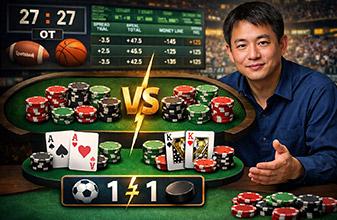Machine losses presented as “wins”

It is of course fact that the slot machine ultimately prevails. The hope of short-term variance leading to a jackpot or winning run is the motivation behind playing machines at a casino, whether it be in Las Vegas or in an online casino.
Disguising losses as wins is one method slot machine operators keep players engaged, even if the majority of them are aware—at least to a reasonable degree—that the house has the better odds. Players may continue to play even as their losses mount if they are unaware of how frequently they are losing.
Slot machine expert Dr. Michael Dixon, a psychology professor at the University of Waterloo with a focus on gambling psychology, provided an example of a customer playing a machine for $1 a spin at a casino:
“When you spin and you lose everything,” Dixon said, “the machine goes quiet. When you spin and you actually gain more than a dollar, you hear the ‘bing-bing-bing,’ all those celebratory animations. On losses disguised as wins, you may win on one of the 20 lines that you bet on, so you win five cents, say, on that line. But the machine still goes ‘bing-bing-bing,’ as though it’s celebrating the fact that the player has just lost 95 cents on the dollar.”
The gentle journey to nothing left
The casino settings are intended to be captivating, even on the gradual voyage to zero. To indicate who is winning, they use lights, noises, and other indicators.
“But when you go into a casino,” Dixon said, “and it sounds like all the machines are winning all of the time because the frequency of these losses disguised as wins, the full losses are still the most frequent, but the frequency of the losses disguised as wins are more frequent than the actual wins. So it kind of distorts the perception of how you’re doing on the slot machine.”
It's not difficult to picture a novice player of slots believing that every machine in a certain area is "hot." That defeats can be tricked into thinking they are victories is not surprising. However, seasoned gamers are also susceptible to this psychological ploy.
“We did a study with these experienced players and we had them spin like 200 times and asked them, ‘OK, how many times did you win more than you wagered?’ So, a true win,” Dixon said. “They tend to overestimate the number of times depending on the number of those losses disguised as wins.”
The changeable prizes on slots machines serve two purposes. They lessen the player's sense of failure during the gradual descent to zero. Furthermore, they make it challenging to monitor the high percentage of failure spins.
Steady rewards versus fluctuating rewards
In the 1950s, behavioral studies provided credence to a school of thinking known as "behaviorism." According to behaviorism, learning and interactions with the environment shape human behavior more so than emotions or ideas. Different rewards prevented behaviors from fading more effectively than consistent rewards, according to experiments on behavior reinforcement and conditioning.
“What they found was that if you gave an animal a reward every time and then just stopped giving rewards, they would ‘extinguish’ really quickly,” Dixon said. “[Whereas] if you make the rewards variable, then when you stop giving the reward, they will continue to play.”
Slot machines and social media feeds alike are built around variable payouts. The suspense and eventual victory are heightened by the unpredictability of when a reward will be received. Slot machines are more enjoyable to play and can conceal losses thanks to the changeable prizes themselves.
The same psychological factors that draw people to slots also make it risky to try to imitate professional machine players, who do actually exist.
“A very small number of extraordinarily disciplined and experienced players are able to consistently find an advantage over other players or the casino,” according to National Council on Problem Gambling Executive Director Keith Whyte. “However, trying to emulate these professional gamblers is a bad idea for almost every (non-professional) player. I’ve met many people in recovery from severe gambling problems who said at one time they considered themselves to be ‘professionals,’ as they were in denial about losing control of their gambling and the mounting financial and emotional consequences. The more time and money spent gambling, the more likely there will be a net loss over time.”
Of course, readers of BJ21.com and other advantage-player websites are far more likely than most to be such “extraordinarily disciplined and experienced players.” However, such players often fail to recognize that even those in their immediate families can fall victim to the allures of casinos. The true professionals must be alert and take appropriate steps to safeguard those “civilians” who sometimes accompany them on what the professionals see as routine business visits into casinos.
Slot machines are made to entice casino patrons while hiding the amount of money they lose. Nearly anyone might be tricked into believing they are winning even as their bankroll is dwindling.











Please log in or register to leave a comment